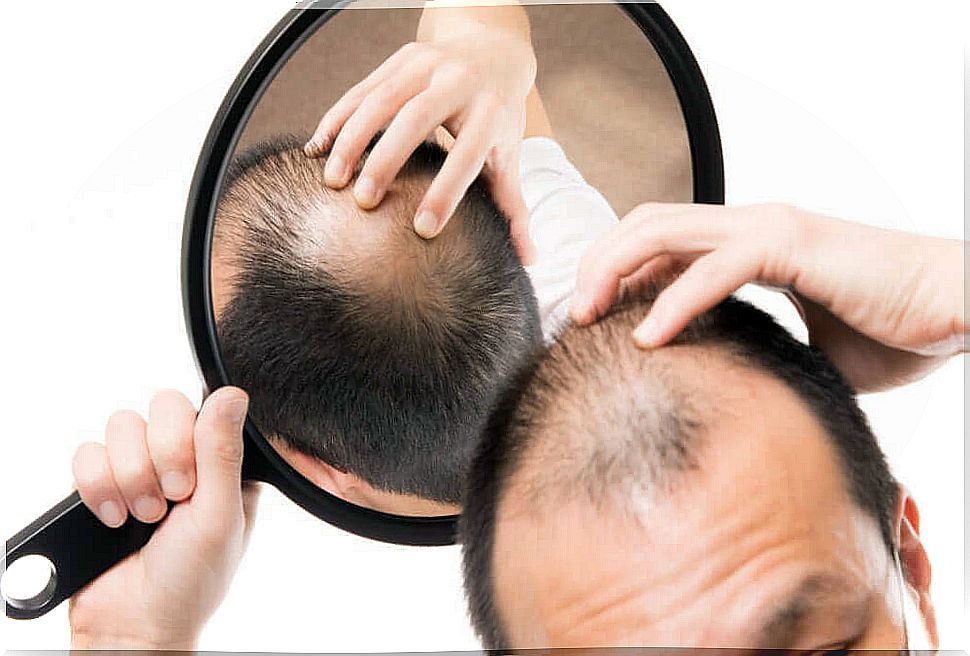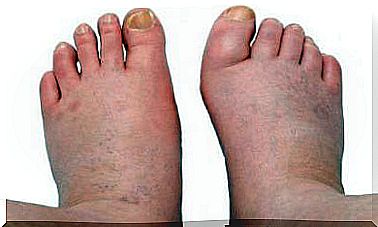Why Is Hair Falling Out?
It is normal for your hair to fall out on a daily basis. We lose our hair but it is constantly renewed and a balance is established. However, when the loss is continuous and there is no hair renewal, special treatment may be necessary.

Sometimes the hair falls out for reasons that don’t matter much, but sometimes it can be a sign that something is wrong with the body. Usually, we lose between 50 and 100 hairs per day. At the same time, new hair is born every day to compensate for this loss.
The problem arises when you lose hair but don’t renew it. These processes tend to take place very slowly and, therefore, are often not noticeable in the early stages. If in doubt, it is best to compare the current look with photographs from previous years.
Regardless, there are many reasons for hair falling out. Here are the main reasons for this situation.
Why does hair fall out: androgenic alopecia

In androgenic or androgenetic alopecia, two factors combine:
- Imbalance of androgens, which are masculinizing hormones, but which are present in both men and women. Currently, there are treatments to manage the hormonal factor
- Hereditary factor : If there is a history of hair loss in a person’s family, it is highly likely that this characteristic will be inherited. Currently, there is no treatment or control of the genetic factor
Acute telogen effluent
It is one of the most common causes of their fall. It occurs two or three months after the body has been under severe stress. Has prolonged illness. Has a serious infection. Or a surgical operation, etc.
It also occurs when there are hormonal changes, such as those caused by pregnancy, for example. It requires analytical study to determine the cause and is treatable.
Why does hair fall out: alopecia areata
In the context of alopecia areata, hair loss is an autoimmune reaction. This means that the hair is attacked by our own defenses. Sometimes it also affects the eyebrows, eyelashes, and hair all over the body. Sometimes it leads to total baldness.
Currently, there are multiple treatments for this form of alopecia. Evaluation is necessary to rule out the presence of concomitant autoimmune diseases.
Scarring alopecia
Scarring alopecia is the result of other diseases, such as lupus erythematosus, lichen planus pilaris, dissecting cellulitis, decalcifying folliculitis, and erosive tuberculosis. A particularly aggressive form of cicatricial alopecia is fibrous frontal alopecia, in which there is also loss of the eyebrows.
Usually, a skin biopsy is needed to make the diagnosis, which should be early.
Why does hair fall out: side effect of a drug

There are several drugs that affect hair loss. Some of them are those that contain lithium, beta blockers, amphetamines, warfarin, heparin, and levodopa.
It also occurs with certain drugs used for blood pressure control and depression, as well as with those used in cancer chemotherapy. They usually stop falling when you stop taking these drugs.
Scalp fungal infection
Several scalp problems can cause them to fall, the most aggressive being fungal infections, which cause hair to fall in clumps, generating bald patches on the scalp surface and peeling.
Chronic stress
One of the common causes of their fall is stress. This is because the normal blood circulation of the scalp is affected, resulting in easy hair loss. The good news is that by overcoming these anxiety states, through therapy or relaxation techniques, hair grows back normally.
Bad care
Another common reason for hair loss is poor hygiene or poor care practices. Some shampoos or fixatives are very powerful and cause weakening of the scalp. Frequent use of a blow dryer, curling iron, or flat iron can also be detrimental to the health of the hair, as can the regular application of dyes.
Other sanitary conditions
Hair loss is common in people with thyroid problems, as well as in those who have diabetes or are going through menopause. Psoriasis and seborrheic dermatitis also have a big impact on hair loss.
It is also a common symptom in people who are anemic or suffer from vitamin deficiency. It is important to restore vitamin C so that iron can be absorbed and thus increase the production of collagen. It is also necessary to consume foods rich in vitamin B.
Other possible causes
Often, hair falls out for unknown reasons. For example, strict diets; that lead to significant weight loss in a short period of time often results in hair loss. Dramatic changes in temperature can also have this effect. It is advisable to cover your head when you are in the sun.









